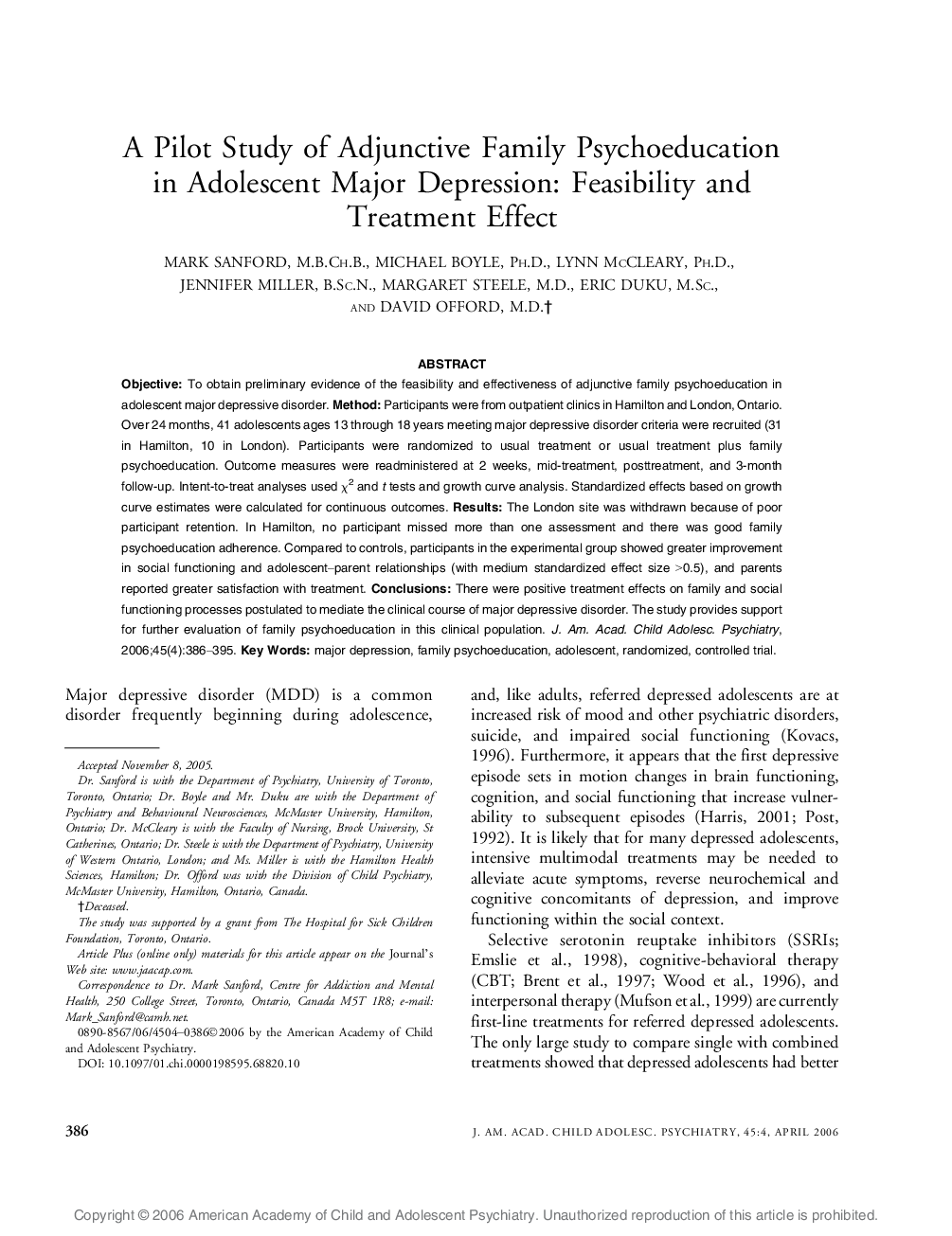| Article ID | Journal | Published Year | Pages | File Type |
|---|---|---|---|---|
| 325112 | Journal of the American Academy of Child & Adolescent Psychiatry | 2006 | 10 Pages |
ABSTRACTObjectiveTo obtain preliminary evidence of the feasibility and effectiveness of adjunctive family psychoeducation in adolescent major depressive disorder.MethodParticipants were from outpatient clinics in Hamilton and London, Ontario. Over 24 months, 41 adolescents ages 13 through 18 years meeting major depressive disorder criteria were recruited (31 in Hamilton, 10 in London). Participants were randomized to usual treatment or usual treatment plus family psychoeducation. Outcome measures were readministered at 2 weeks, mid-treatment, posttreatment, and 3-month follow-up. Intent-to-treat analyses used χ2 and t tests and growth curve analysis. Standardized effects based on growth curve estimates were calculated for continuous outcomes.ResultsThe London site was withdrawn because of poor participant retention. In Hamilton, no participant missed more than one assessment and there was good family psychoeducation adherence. Compared to controls, participants in the experimental group showed greater improvement in social functioning and adolescent-parent relationships (with medium standardized effect size >0.5), and parents reported greater satisfaction with treatment.ConclusionsThere were positive treatment effects on family and social functioning processes postulated to mediate the clinical course of major depressive disorder. The study provides support for further evaluation of family psychoeducation in this clinical population.
